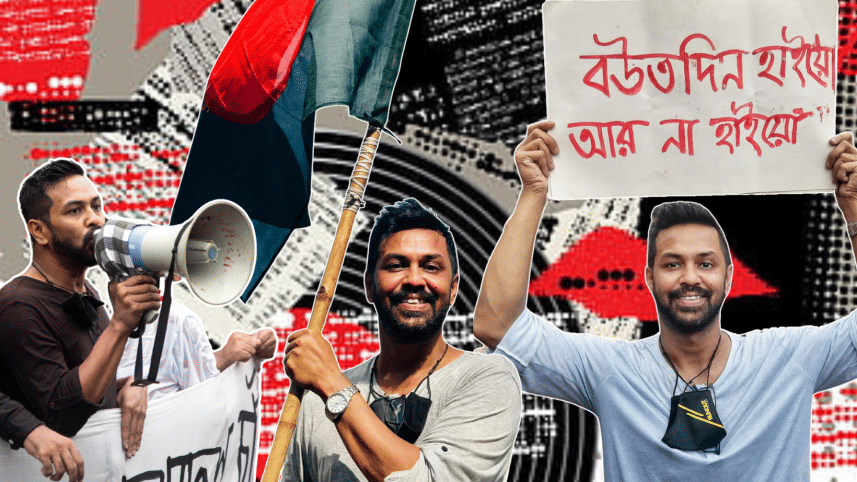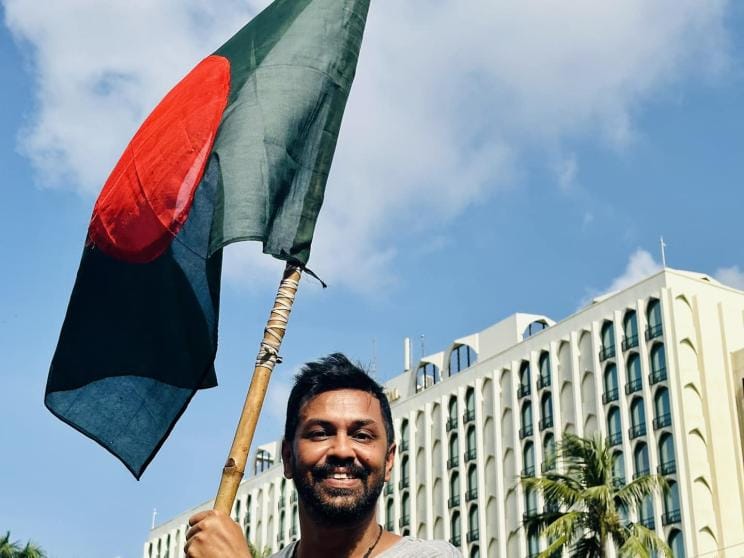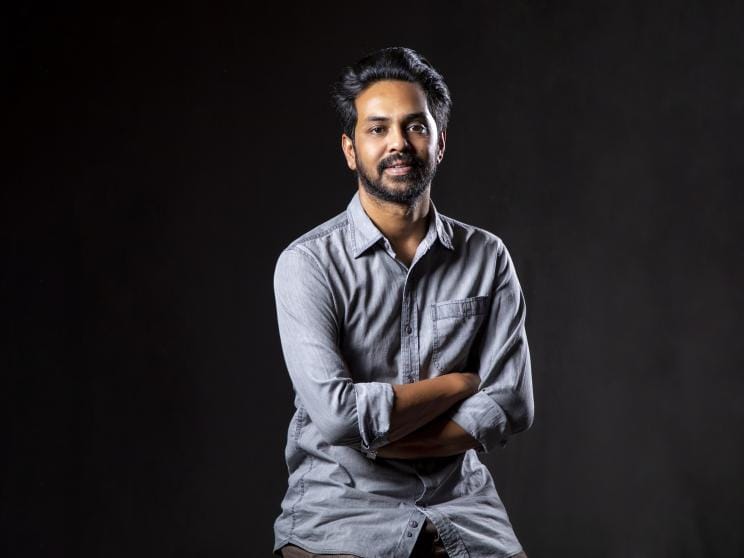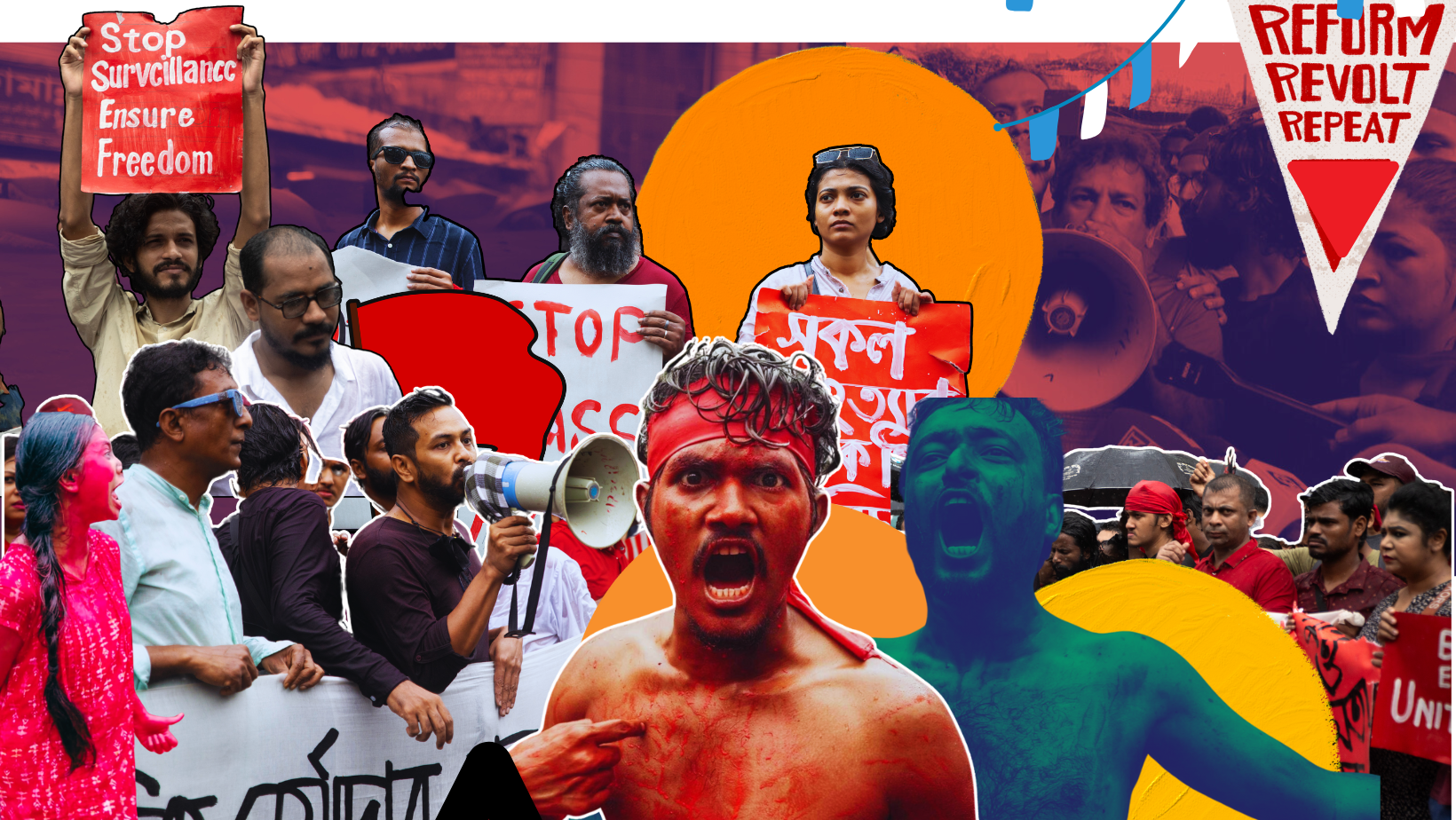The dissection of an Uprising with Ashfaque Nipun

Reminiscing on the historic August 5 is filmmaker and activist Ashfaque Nipun, who was actively involved throughout the entire uprising and has been a participant in the anti-fascist movement for the past 17 years.
Walk us through August 5 last year.

On the night of August 4, I couldn't sleep at all. I had already received multiple warnings from the Detective Branch, calling me several times to caution me. There was a fear of a police raid at my home. My friends and well-wishers kept telling me not to step outside because a curfew was imposed for the next day. I knew that I had to get out, regardless of the risk.
That night, there was constant tension — what would happen tomorrow? Would the government really fall? Would they even let it fall? On the other hand, Awami League activists, from artistes to party workers, were fearmongering online with awful slogans.
The next morning, since the curfew was ongoing, I had to join a large group — there was no other option. But I couldn't reach them because the army had blocked the road and fired blank shots, and didn't allow us to assemble. They chased us away.
I returned home, furious beyond words. This happened around 9:30 in the morning. I was angry and felt deeply insulted that I had come out to protest, but wasn't even allowed to stand on the streets, and instead, was chased away like a criminal.
I took to the streets anyway and reached Shahbag. It was Elita who called me and informed, "Hasina has fled, and the government has fallen."
Many urged me to go to Ganobhaban, but I didn't go. I believed my job was done. I returned home on a rickshaw. On my way back, I bought sweets for everyone.
However, after reaching home, we received some distressing news. Police stations across the city were being attacked, and religious minorities were in danger. I remember immediately posting on social media, urging everyone to protect police stations and ensure the safety of minorities.
Once the interim government was formed, several committees were established to reform the entire entertainment industry. You declined the offers. Where do you see these committees, after a year?

If I'm being honest, I haven't seen any visible success from these committees. The only achievement I can mention is the reformation of the film censorship grading system when Nahid Islam was an adviser.
I had expected the changes to be more transparent and visible. Historically, the entertainment sector has never been viewed from a business development perspective by any government. Rather, they have always tried to politicise it. I haven't seen any real efforts to break out of that mindset and establish a welfare system for filmmakers and artistes.
Unfortunately, just a few days ago, government grants were distributed from the Grant Committee. I noticed that most people who received the grant were already a part of some committees – that was disappointing to say the least.
As the interim government completes a full year in power, how would you evaluate their performance?
It is often said that this interim government was formed at the most pivotal moment in Bangladesh's political history.
If we look back at the last 17 years, the way Sheikh Hasina systematically destroyed every institution — where do I even begin? Law enforcement, the judicial system — there isn't a sector she didn't manipulate. Even the defence forces were riddled with corruption under her regime.
Given all that, there are still certain things that have been deeply disappointing and, frankly, shocking. First, the fact that even after a fascist regime was overthrown during the July Uprising, key figures of that regime were allowed to safely exit the country within two to three months of the government's formation. To me, this is a complete security failure.
This government wasn't formed through backdoor negotiations or political deals — it was born out of a people's movement. According to UN reports, around 1,400 people lost their lives and nearly 20,000 were injured during the uprising. After all that sacrifice, how did the criminals of the past 15 years still get the chance to escape? There's no justification for this.
The most alarming issue we are facing right now is the rise of mob culture. Some have labelled it 'mob justice', but mobs can never bring justice. This government wasn't supposed to have any political agenda. Yet their failure to control these mobs — and worse, categorising them as 'pressure groups' — is inexcusable.
The law-and-order situation has been deteriorating day by day. As a citizen, I can tolerate excuses once or twice, but not repeatedly. I want to see concrete action being taken.
I also noticed a problematic trend of indiscriminate filing of cases. After this government was formed and many Awami League figures fled the country, random murder cases began to be filed against artistes! This malpractice was also rampant during the previous regime.
As for success stories, I'll leave that to the government to present. Certainly, they may have many successes to showcase. For example, loan repayments by cutting the cost of the mega projects have been managed well, the Hajj management was fantastic, and during Ramadan, the prices of daily necessities were kept under control. In my opinion, these are significant successes.
As someone known for your sharp critique of political and social issues, what recent event has caught your attention — something you'd consider turning into a work of fiction?

Mobocracy or mob lynching is a phenomenon that someone will inevitably pick up as a subject, and I feel human nature is unpredictable — that's what makes it so fascinating. This topic could be explored for years through films, documentaries, or literary works.
If I were to choose this as a fictional narrative, I would probably focus on telling the stories of those individuals who, after forming the government as part of the team — not all, but some — experienced drastic changes in their lifestyles after coming to power.
Also, the moral dilemmas surrounding the idea of 'doing wrong to the wrongdoers' — whether it is right, or if it can ever be justified — that's an area I find deeply intriguing and worth exploring.
Did it all affect the OTT and film industry?
The film industry is actually blooming, as I see it. Our recent films have been doing tremendous business. Considering the current social situation in the country, people are still going to cinemas and accepting different stories and genres.
As for OTT platforms, they thrived when they prioritised the voices of writers and directors over profit margins, whether it was "Taqdeer", "Mohanagar", "Kaiser", "Allen Swapan", or "Pett Kata Shaw". However, in recent years, business has taken precedence, and as a result, we are not getting new voices that connect with the audience. We are losing that creative dynamism.




 For all latest news, follow The Daily Star's Google News channel.
For all latest news, follow The Daily Star's Google News channel. 
Comments